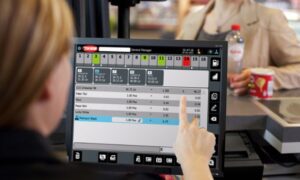There is still a strong demand for restaurant franchises today, making them excellent business enterprises that may capitalize on their popularity and revenue-generating potential. Some people may think owning a restaurant franchise is easy to become wealthy fast, but it requires a lot of labor, time, and money to stay in business and grow. When contemplating whether or not to purchase a franchise, weigh the pros and cons of becoming an owner before making a final decision.
What Is a Restaurant Franchise?
Franchises are contractual agreements and, most importantly, relationships between a restaurant’s corporate owner and its currently-operating franchisee. The brand’s owner licenses a restaurant to a franchisee that pays for the use of the brand’s intellectual property, including the trademark and marketing strategy, which the franchisee owns and operates. Choosing the Golden Chick Restaurant Franchise Opportunities is essential there.
Types of Restaurant Franchises
Small take away fast-food corner: Table service is not available in fast food establishments, which are often known as “quick service” restaurants. This restaurant allows clients to purchase pre-prepared meals that may be taken home or eaten at the place once the purchase has been made.
Casual Café Corners: Cafe’s and takeout restaurants are examples of quick casual restaurants, which sit midway between fast food and full-service venues in terms of service. Compared to a typical fast-food restaurant, where meals are provided in disposable containers with minimal table service, guests usually make their orders at a counter where a full menu is available.
Full-Service Restaurants: Customers may pay for their meal at the end of their dining experience at these franchise restaurants, which provide table service and various food and drink choices.
Restaurant Franchise Ownership Benefits: Prompt Brand Awareness
Restaurant franchisees get immediate brand recognition and the trust of their consumers, a process that might take years to complete otherwise. Because of this familiarity and reputation, it is feasible to take over a brand without having to establish a customer base from the ground up from scratch. It is important to note that new franchise owner’s benefit considerably from having an initial customer base. They can take advantage of the benefits since the franchisor has already taken risks, learned the ropes, and survived so that new franchise owners do not have to.
Process of Training in Great Depth
Before a franchisee can open a restaurant, they might anticipate a lengthy training program. When it comes to training programs, they may span anything from a few days to many months. As a result of this advantage, a restaurant owner can access information that an independent restaurant owner would never have.
Ready to Go
To create a restaurant on your own, you’ll have to do a lot of legwork, including finding a place, signing a lease, designing and constructing a facility, buying supplies, coming up with a menu, and organizing and publicizing an official grand opening. On the other hand, the owner just opens the door when it comes to restaurant franchises, and the business is ready to go.
Conclusion
When it comes to the long-term sustainability of a franchise, the quality of a franchisor is just as important as the quality of its franchisees. It is also safe to assume that the profits made by restaurant franchisees will be theirs and not those made by the franchiser. To make matters worse, if a restaurant fails, the franchisor isn’t liable for compensating its owner for any lost revenue.



































